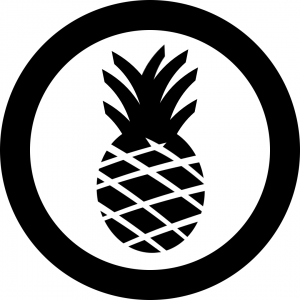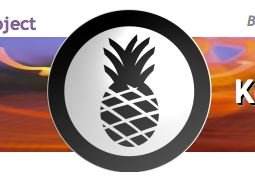Konomark: An Open Licensing Alternative?
 Recently, I (re)discovered a copyright mark that aims to make it easier to freely share your work, while removing many of the concerns some have with solutions such as Creative Commons as well as open source licenses.
Recently, I (re)discovered a copyright mark that aims to make it easier to freely share your work, while removing many of the concerns some have with solutions such as Creative Commons as well as open source licenses.
The Konomark was developed by Eric E. Johnson, an Associate Professor at the University of North Dakota School of Law as a way of encouraging open sharing of work without the need of entering into a license.
The reason is that Konomark is not a license at all. Rather, it’s an indication that rights to the work may be freely available and it’s an invitation for visitors to ask for permission. This means you don’t actually surrender any rights to your work, you can simply say “no” to everyone who asks and the decision to use a Konomark is not permanent.
According to the site, the three rules for using Konomark as are follow:
- You use the konomark only to mark your own copyrighted works.
- By konomarking a copyrighted work, you intend to invite people to ask you for permission to use that work.
- You are generally amenable to letting people use, without compensating you, the copyrighted content you’ve konomarked �” even though the konomark does not legally obligate you.
All one has to do is either download the image and put it up on their site or use the simple HTML code provided. Since there is no license created, there are no terms to select.
Though I haven’t seen any other sites with the Konomark, it’s been available since 2008. The question remains though, who will be interested in using it and in taking advantage of works bearing the mark?
General Thoughts
The potential benefit of Konomark is pretty clear. Many people are open to the idea of allowing content reuse but either don’t wish to commit to a license or don’t wish to add a licensing layer to it. The Konomark is a simple, attractive way to add an encouragement to ask for permission.
That being said, it doesn’t really do anything that can’t be achieved by saying “Some Rights Reserved, Ask For Permission” prominently on your site. In that regard, it is very similar to Lorelle VanFossen’s “Ask First” buttons, icons that ask others to seek permission.
Another potential issue is that the mark might be misunderstood by site visitors to be just another open licensing scheme, encouraging others (unwittingly) to take works without permission. Since the mark looks somewhat similar to Creative Commons and other copyright markers to the like and is not well-known, it might create problems.
However, the potentially biggest issue is that the idea of asking for permission and waiting for a reply is, usually, an avoidable obstacle. If I need an image for a blog post, I can use any number of stock photo sites and be up and running in seconds, legally. For most casual use, this is just a more efficient system and it’s one that works better for both the creator trying to encourage use and the person seeking to use the work.
Still, I can definitely still see situations where this mark might be a valid alternative. The real question is whether or not the mark will gain enough visibility to add benefit that goes beyond what a creator can do themselves.
Bottom Line
According to the site, Kono means to “invite, prompt, or ask in” and that the pineapple is a symbol of friendship. This is definitely the heart of Konomark, which definitely has the best of intentions and, all in all, not a terrible idea.
However, as much as I want to find a place for it, and many creators may be able to do so, it seems to have largely been passed by and like it would just be a less convenient solution to a problem that many feel is already solved adequately.
As much as I would like Konomark to succeed, it certainly has its heart in the right place, I’m not optimistic at this time and it seems others share that viewpoint. I’m hoping that, maybe, some of you can convince me otherwise.
Want to Reuse or Republish this Content?
If you want to feature this article in your site, classroom or elsewhere, just let us know! We usually grant permission within 24 hours.
